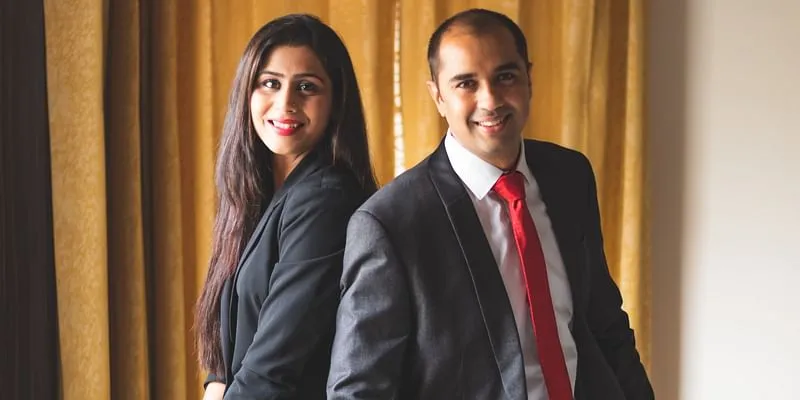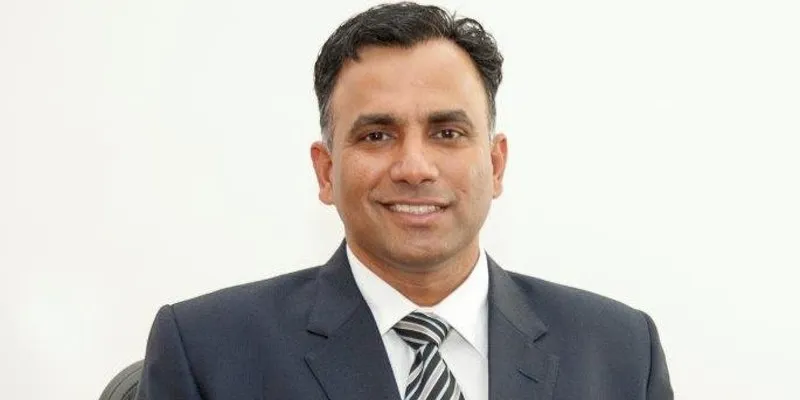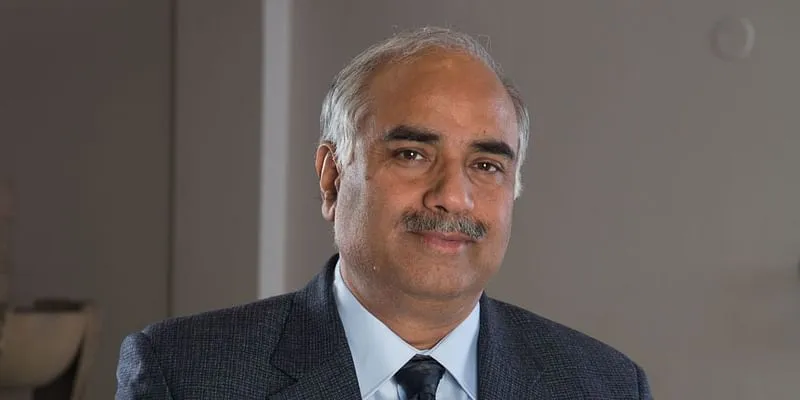These top 10 homegrown business stories of 2020 will inspire you to become an entrepreneur
As the nation geared towards building an Aatmanirbhar Bharat in 2020, SMBStory told the stories of hundreds of homegrown businesses and brands and put them in the spotlight. Here are ten of the most impactful stories.
In 2018, we launched SMBStory to tell entrepreneurial stories of grit, perseverance, and determination to succeed against all odds. 2020 has been a year full of such stories.
When the nationwide lockdown was imposed in March 2020, business activity came to a halt and exacerbated the liquidity crunch in the small business sector. Those running small businesses and consumer brands faced extended periods of near-zero revenue, and many shut shop.
Entrepreneurs responded in myriad ways to challenges posed by the COVID-19 pandemic, and led the way towards building an Aatmanirbhar Bharat. Despite the struggle, a spirit of building self-resilience and courage in the face of adversity became important in the road towards recovery.
As the nation geared towards building an Aatmanirbhar Bharat, SMBStory told the stories of hundreds of homegrown businesses and brands and put them in the spotlight.
Here are ten of the most inspirational and impactful stories of Indian SMBs and brands we covered in 2020.
Suguna Foods

B. Soundararajan, Chairman and Managing Director, Suguna Holdings Pvt. Ltd.
One of India’s leading poultry businesses, was started in 1986 when brothers GB Sundararajan and B Soundararajan started a small poultry trading company, wherein they supplied equipment, poultry healthcare products, feed, and chicks to other poultry companies.
Three years into the trading business, they realised that many farmers were giving up farming because of the large credit gap in the market. With a dearth of structured loans from banks, these farmers had to depend on private lenders. Also, they were unable to sustain themselves on an unstable income.
This is when the idea to adopt a contract farming model struck the brothers, which cuts out the middleman. In 1990, Suguna Foods, with just three farms, started contract poultry farming, wherein it provided farmers everything they needed for rearing chicks — from feed to medicines, and, in turn, the farmers supplied the poultry to Suguna Foods.
At present, close to 80 percent of poultry in India is grown using contract farming. Through this model, Suguna Foods is providing a stable income to over 40,000 farmers. Primarily known for its quality-grade chicken and related food products, it also operates about 66 feed mills across the country. The homegrown business rakes in Rs 8700 crore in annual turnover.
Borosil

Shreevar Kheruka, Managing Director, Borosil
When Borosil was started in 1962, it was formed to acquire the undertaking of the Industrial and Engineering Apparatus Company. The name was inspired by borosilicate glass, the company’s main product category. Borosil also started using the Corning brand. Until 1988, Corning was the majority shareholder.
That year, Corning divested its shareholdings, making the Kheruka family the majority owners of Borosil.
In 2013, the Kherukas came up with a new business model that allowed them to diversify from a predominantly laboratory glassware company to becoming a complete lifestyle brand with a large product range such as serving ware, kitchen appliances, storage containers, hydration bottles, kitchenware, etc.
It was this diversification that made Borosil a household name that it is today, and took its turnover to Rs 635 crore in 2018-19.
“Our consumer products division sells microwavable and flameproof kitchenware and glass tumblers. Our products have become almost synonymous with elegance, dependability, safety and ease of use. In the kitchenware segment in India, Borosil is a generic term for microwavable glassware,” says Shreevar Kheruka, Managing Director, Borosil.
Metro Shoes

Farah Malik Bhanji, CEO, Metro Brands Ltd
Malik Tejani was a shoe salesman during the pre-independence era and used to work at a store in Colaba, Mumbai. When India became independent, the owner of the store had to leave the country owing to the crisis caused by Partition.
An extremely passionate salesman, Malik took a loan from a well-wisher and bought the store. He named the store Metro Shoes, derived from the popular Metro Cinema in Mumbai.
Today, Metro Brands Limited is one of the most well-known footwear brands in India, selling across different categories for men, women, and children. After Malik Tejani, his son Rafique Malik took over at the age of 16 and today, Malik’s granddaughter Farah Malik Bhanji runs the family business as its CEO.
Farah recalls how much the business has changed since the time of her grandfather, for whom, she says, selling shoes was both an art and a fun activity. She tells that Malik was always instantly recognised by customers, who came from different parts of the country. But now the focus has shifted from personality to personalisation due to a push for customer engagement.
“I have never seen a time in my life when the customer has been so important as is the case today. It has also become crucial to understand the importance of every single person who chooses your brand,” Farah adds.
The brand clocks a turnover of Rs 1,411 crore annually and has a network of over 550 stores across 128 cities in India.
Prataap Snacks

Amit Kumat, MD and CEO, Prataap Snacks
is an Indore-based snack manufacturer that produces the Yellow Diamond brand of chips.
Between April 2019 and December 2019, Prataap Snacks reported a total revenue of Rs 1,079.6 crore.
The company is large now, but it started with humble beginnings. Entrepreneur Amit Kumat hit upon the idea to replicate the success of Peppy Cheese Balls. He realised that Indore was an under-penetrated market for snacks, and he could retail his own version of cheese balls in northern and western India.
The logistics seemed available in Indore. With this idea in mind, Amit and his brother, Apoorva, approached a friend, Arvind Mehta, in 2002. They asked him to invest Rs 15 lakh so they could start a snacks company.
“We promised Arvind we would return the money if the venture did not work out. He agreed. In 2003, all three of us began functioning out of a tiny, 100 square feet office in Indore’s Navlakha locality. Our brand was then called Prakash Snacks, and we retailed cheese balls,” Amit says.
Mamaearth

Ghazal Alagh and Varun Alagh, cofounders, Mamaearth
When Ghazal and Varun Alagh were expecting their baby, they wanted to do everything they could to keep their baby safe. Like any caring parent, the two browsed the internet, searching for do’s and don’ts for the little one and also what products they could buy to pamper their bundle of joy.
But they were shocked to see the results. No product in the market matched the safety standards they were looking for, and every product they looked at contained chemicals harmful to their newborn. The duo was left disappointed.
This experience drove them to create a brand by a parent for a parent - 2016, the couple launched the brand under the parent company Honasa Consumer Pvt Ltd in Gurugram, using the best available ingredients – natural, plant-based, or manmade, which are both certified safe as well as effective.
In four years, Mamaearth became Asia’s first brand to get the MadeSafe certification for its toxin-free products. The company has catered to over 1.5 million consumers directly and via ecommerce in more than 500 cities across India.
Kent RO

Mahesh Gupta, Founder and CMD, Kent RO
In the 1990s, IIT Kanpur graduate Mahesh Gupta was on a vacation with his family when both his kids suddenly fell ill. The children drank contaminated water and were diagnosed with jaundice.
The kids recovered but Delhi-based entrepreneur Mahesh could not forget the incident. He started researching on water purification and found that the commonly-used Ultra Violet (UV) system purifiers were not good enough to remove dissolved impurities from water.
The process of Reverse Osmosis (RO) caught Mahesh's attention. RO is a process of water purification that uses a partially-permeable membrane to remove ions, unwanted molecules, and large particles from water.
In those days, no one in India was using RO to make water safe for people to drink. Mahesh decided to test it out and imported a membrane and a pump from the US. At home, he built his first RO water purifier and thus began the journey of .
Today, the business claims to clock a turnover of around Rs 1,000 crore and has a 40 percent share in the RO purifiers market.
Nilkamal

Mihir Parekh, Executive Director, Nilkamal Limited
In 1981, Vamanrai Parekh and Sharad Parekh decided to step out of the family business of manufacturing buttons and pivot to making plastics, which was gaining prominence in the market.
The brothers started a small business of manufacturing plastic household items at a rented premise in Powai, Mumbai, including buckets, baskets, mugs, etc. Thus began Nilkamal Plastics, which later became Nilkamal Limited. Over the last four decades, Nilkamal has garnered a strong legacy and gained the consumer’s trust.
In the late 80s, the brothers were attending an exhibition in Germany, where they saw long rows of plastic chairs. At the time, Indians were using wooden or metal chairs, and plastic furniture wasn’t in demand. But Vamanrai and Sharad placed an order for the chair mould in Germany and decided to manufacture plastic chairs in India.
Hence began Nilkamal’s furniture manufacturing vertical. Today, with over 2,000 distributors who supply Nilkamal products to 19,000 retail points, and with a sales team of more than 400 who manage its B2B segment, the company rakes in a turnover of more than Rs 2,200 crore.
Vinati Organics

Vinati Organics founder Vinod Saraf (left) with current CEO and MD Vinati Saraf Mutreja (right)
Vinati Organics Limited (VOL) is the world’s largest manufacturer of niche chemicals Isobutyl Benzene (IBB) and 2-Acrylamido 2 Methylpropane Sulfonic Acid (ATBS). The company was started in 1989 by Vinod Saraf, which now clocks Rs 1,000 crore in revenue.
But, VOL may not have reached these heights if not for Vinod’s daughter Vinati. Till 2006, despite being a market leader in IBB and venturing into ATBS, the business was making just Rs 2 crore profit and was unable to produce the right quality of ATBS.
Vinati teamed up with her father, and she started from the ground up, spending time in various VOL divisions and learning the ins-and-outs of its numerous business functions.
She managed to bring a consultant on board, and figured out a way to cut costs and improve productivity by optimising batch timings. This resulted in increased capacity with minimal investment.
“Considerable effort was also put in for improving quality by engaging international R&D experts. This paid off when it resulted in a breakthrough, and we figured out how to greatly improve the quality of our ATBS,” she says. This enabled VOL to ramp up its production of ATBS to 25,000 tonnes, becoming the world’s biggest manufacturer of the chemical.
Cycle Pure Agarbathies

Arjun Ranga, Managing Director, NR Group
N. Ranga Rao was only eight years old when he lost his father. Coming from a family of teachers and purohits (priests), he was burdened with familial responsibilities at a very young age. He started working small jobs, switching from one to the other to make his ends meet.
Years passed by, and in his teenage years, he moved to Coonoor to work as a store supervisor. In the 1940s, Ranga Rao started an agarbatti business from his home and named the company Mysuru Products and General Trading Company, and later changed it to NR Group.
Ranga Rao started making agarbattis at home with the help of his grandmother. He used to visit the market every day to get raw materials, make the product, sell it, and use the money to buy more raw materials. He fed his family with the remaining money.
Today, the company clocks a turnover of Rs 1,700 crore with a strong presence in 75 countries. It claims to have sold 12 billion packets of agarbattis last year alone.
Jaquar Group

Rajesh Mehra, Director and Promoter, Jaquar Group
When the Late NL Mehra started his bathroom fittings business in Delhi in 1960, he knew that establishing the business would be an uphill task. At that time, faucets, taps, and valves were a new industry and were sold as commodities. Nobody saw the value of branded bathroom fittings.
NL Mehra launched Essco and began building a value-for-money product range in the highly unorganised market for bathroom fittings. Following a customer-centric approach and relying on the founder’s hard work and determination to grow, Essco became reasonably well-known in the market.
It reached Rs 30 lakh annual turnover by 1985. But that was just the beginning of the story for the small bath fittings business. Little did the founder know it would eventually grow into Group — a Rs 3,600 crore turnover business, which claims to command over 60 percent market share in the organised bath and sanitaryware sector in India.
Taken to great heights by the second and third generation enterprises of the Mehra family, Jaquar today is almost synonymous with branded bath fittings and sanitary ware in India. CERA Sanitaryware, Parryware, and Hindware are some of the other notable brands in this space.
Edited by Anju Narayanan







